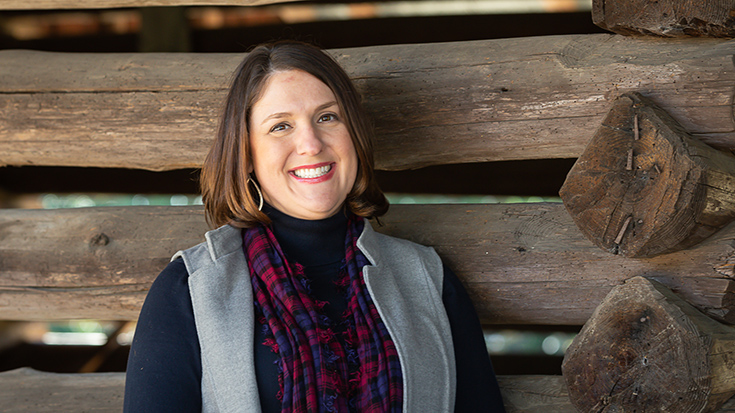
Amanda Clark saw a problem and decided to form her own company to solve it.
When people ask Amanda Clark, RRT, why she decided to become a respiratory therapist, she cites family history as the chief motivator.
“I explain that I come from a long line of ‘wheezers,’” Clark said.
Her mother, sister, and aunt all have asthma, and her grandmother has COPD. But it was two male relatives who sealed the deal.
“The real turning point that steered me toward respiratory care was at age 15 when my grandfather suffered a cardiac event and was placed on a ventilator,” she said. He didn’t survive. “Sadly, just three short months later, my uncle succumbed to pneumonia in the same ICU on the same type of vent.”
Clark entered the profession after college and worked in a variety of settings — adult and pediatric critical care and asthma management among others — but found she had a real passion for diagnostics. Taking the advice of her first boss in the field, she eventually decided to establish her own company to improve pulmonary function testing in primary care.
“My first boss gave me great advice that I followed,” she said. “Do something until you master it and then try something else until you find your niche.”
Born out of frustrations
Clark says her company was born out of long-time frustrations she had experienced with the testing patients received in various settings.
“For most of my career, I have witnessed issues with regards to diagnostic testing — for example, avoidance, skills gaps in clinicians, misunderstood guidelines, and poor quality,” she said. “These issues affect patients and providers in a negative manner, leading to more frustration, mismanagement, and waste in the system.”
Of course, seeing problems and brainstorming ways to solve them are very different from setting up a company of your own. But despite having no formal business training, Clark decided to go for it, and the first thing she did was seek out local resources from mentors in the community. That led her to the Small Business Administration (SBA) and Small Business Development Center (SBDC), two organizations she says proved invaluable to her mission.
Clark says the company exists to “create custom pulmonary solutions that simplify the complexities of quality-driven health care.” She works specifically as a full-service dealer for one international respiratory device manufacturer and as a distributor for several others.
“Basically, these agreements include selling product, and servicing and supporting the customer before, during, and after purchases,” Clark said. She has also partnered with one of the companies to provide training to end-users across the country, and she provides consultation services to help organizations maximize their pulmonary service line and QA/QC support on a contractual basis as well.
Her customers range from health systems and accountable care organizations to private practices and others.
“Our focus is to make quality spirometry accessible in primary care,” she said.
Worth the effort
Clark says the greatest barriers she faced when setting up her business revolved around staff, capital, and the growing pains that are inevitable for any small company. But the rewards far outweigh the headaches that come with the territory.
“When the solution presented to a client is rewarded with a purchase order or contract, when your staff is so excited about your mission that they are willing to take risk, when that end user tells you how great they did with a difficult patient, all the hard work is worth it,” she said.
Amanda Clark has these tips for any RT who might be thinking about starting a business of their own —
- Make sure that you have sound counsel to guide you.
- Seek out resources from the SBA and SBDC; they want you to succeed.
- And finally, understand what problem you are in business to provide an answer to — is that problem really a problem in the eyes of your customer? A mentor told me that if there is no pain associated with the “problem” no one will buy, and your business will fail.





